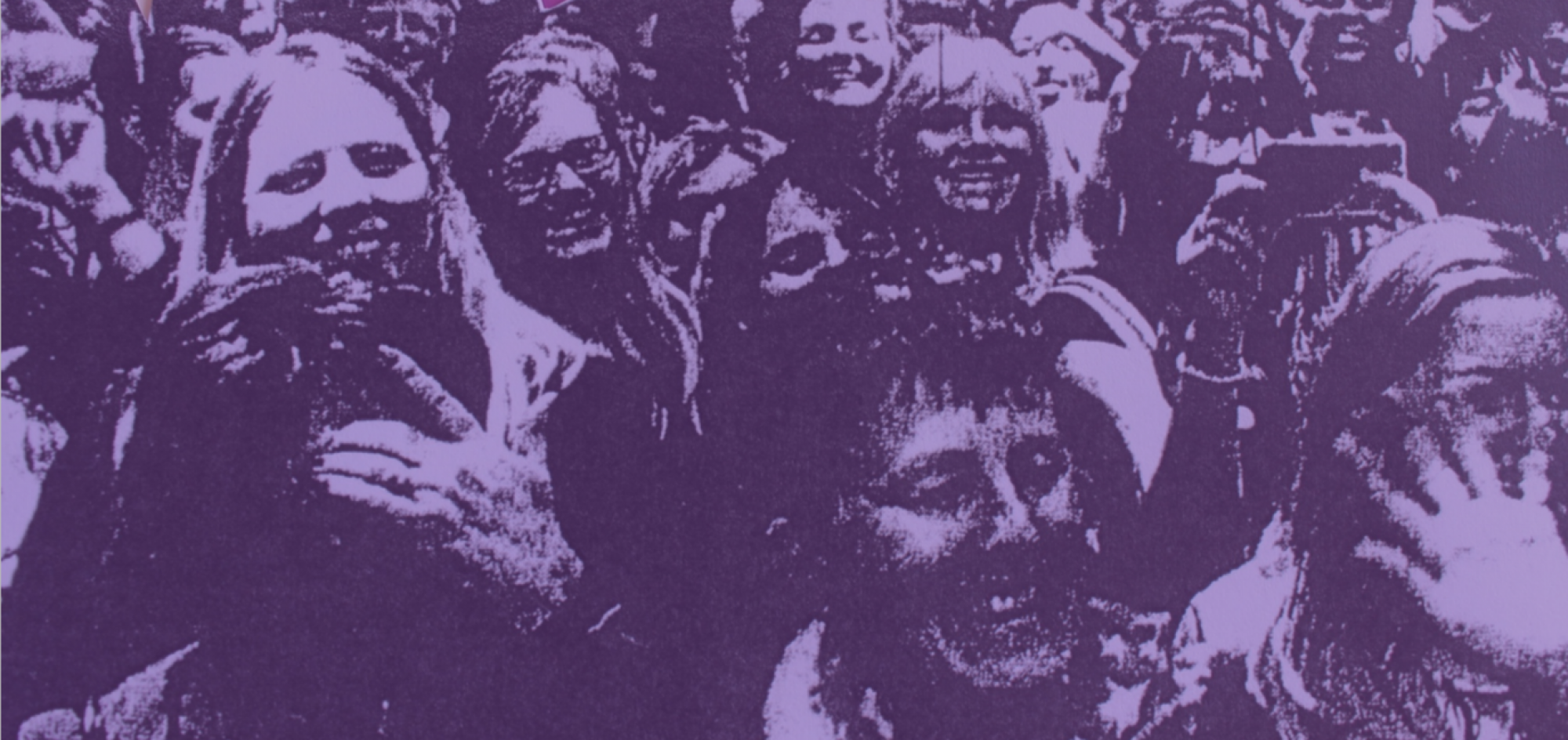Photograph Friday: Unearthing pictures from the largest female dominated protest since the suffragette movement
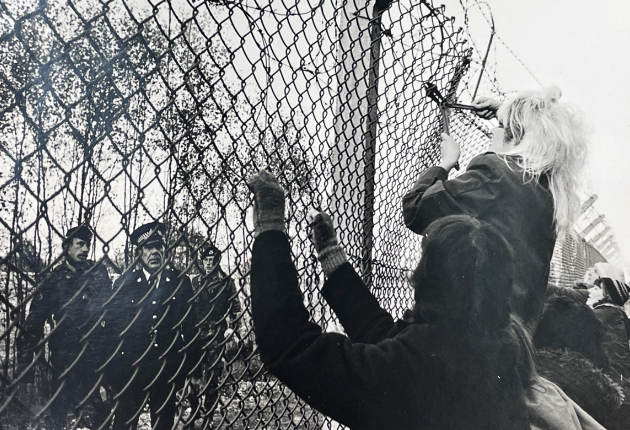
Our archive team had a busy morning last Friday as they navigated their way through a sea of photographs (there were 7 brimming boxes in total), which are just a tiny but significant part of the vast collection we have here at the centre. They unearthed hundreds, if not thousands of photographs, including memorabilia from the Greenham Common Protests, which became the largest female dominated protest since the suffragette movement.
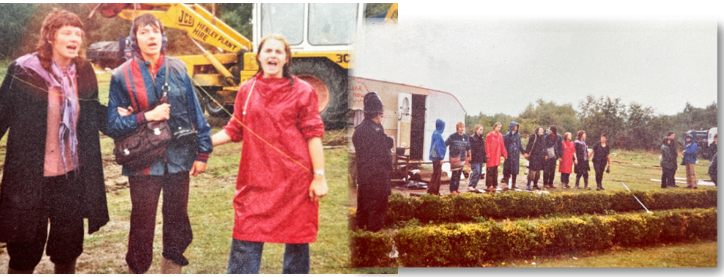
Professional archivist Heather Roberts, who has been working on the restoration project for a long time now was leading last Friday’s task, she explains what her group got up to: “This morning involved organising, matching up and grouping together random pictures that had previously been stored (for decades) in the attic here at the centre.
“We’ve gone through a similar process with all the other artefacts we’ve uncovered so far, however the photographs are a different beast. They have been taken by many different people, for many different reasons and stored all over the place. Our aim is to make sure all the photographs that represent the same event or activity like an exhibition, workshop or drop-in session that was held here at the centre are appropriately grouped together, so if someone is interested in our restoration project, they can just go to one category within the archive”.
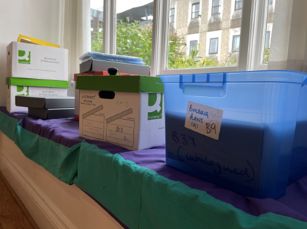
All the items being handled, organised, and preserved by people like Heather have been stored in the attic here at the Pankhurst Centre since the building was taken over by Manchester Women’s Aid in 2014, and are only just being correctly sorted out.
Heather was not alone during Friday’s excavation – Teresa, who is currently reading Heritage Studies at Manchester University, was one of four volunteers helping to archive the pictures last Friday: “I started at the Pankhurst Centre in December last year, since then I have come in once a week to help with the restoration and archive process. My time here so far has consisted of sorting through materials like photographs and paper documents, I then create a digital catalogue of our findings so people can easily access and understand the collection. It has been interesting to delve deeper into the kind of activities that were held here in the past.
“My favourite part about today was unearthing original Greenham Common pictures – Greenham Common was a US military airbase in Berkshire where they held nuclear missiles. In 1981, a group of women camped by the military base for over a year in protest of disarmament, however (after a year of activism) they got kicked out”.
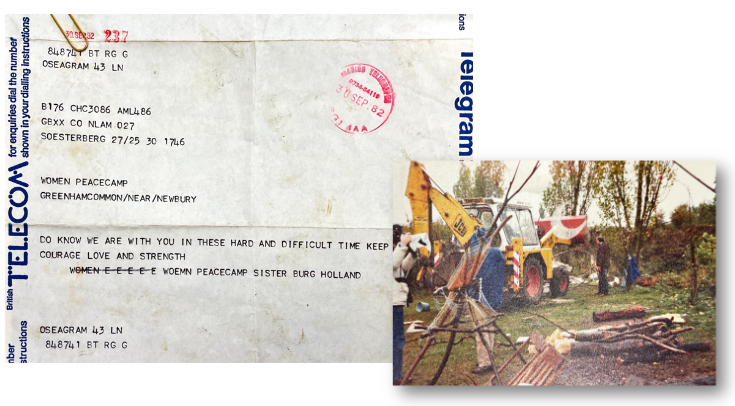
Once the collection has been fully catalogued (we are aiming for October) everything will be transported to Manchester Central library.
By Volunteer Evie
